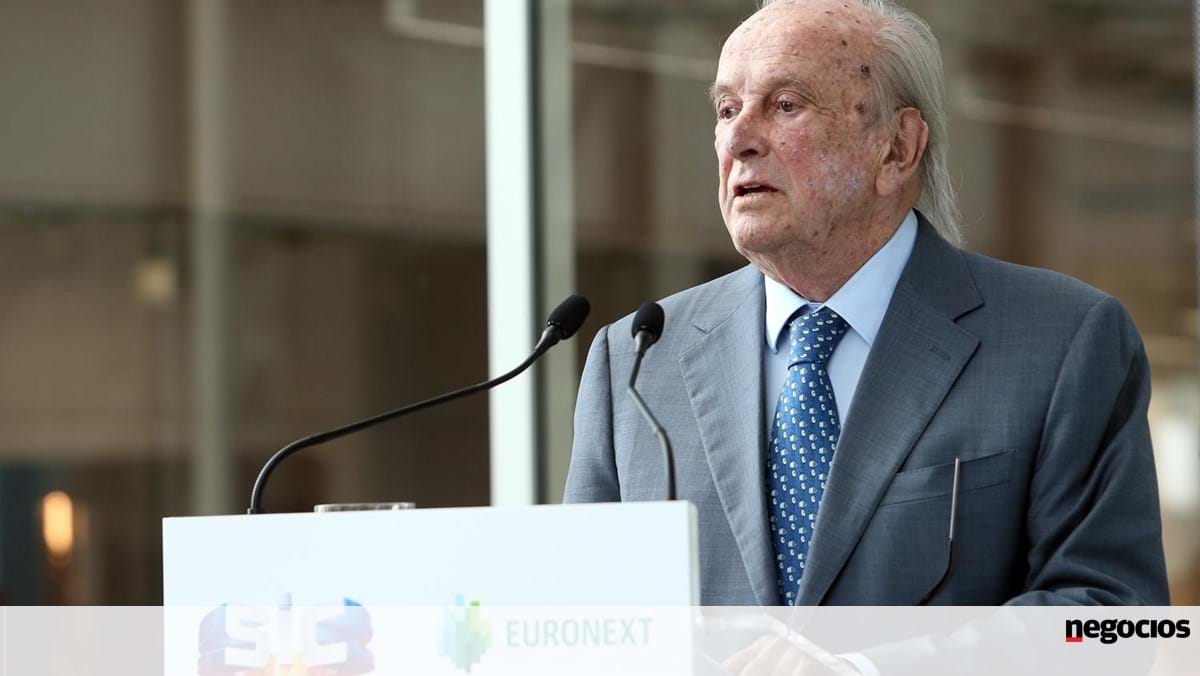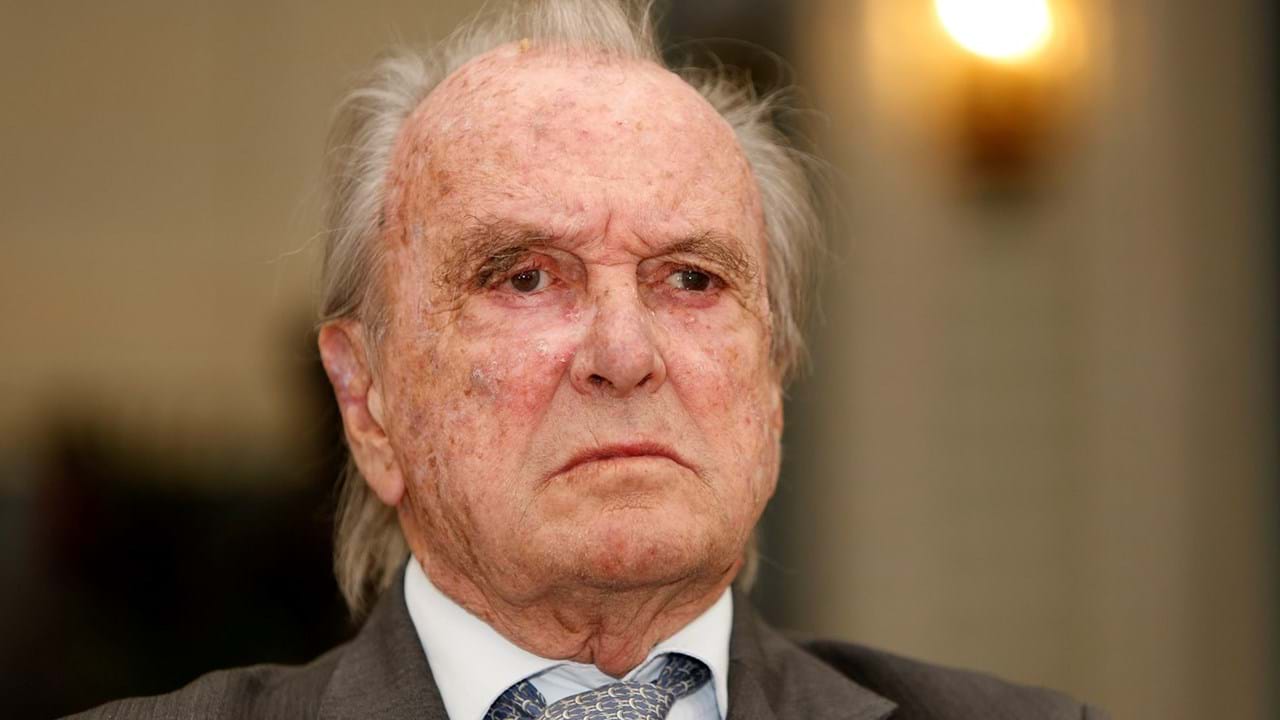Pinto Balsemão, a prominent figure in Portuguese politics and media, left an enduring mark on his nation. His leadership during a pivotal period of transition and his contributions to Portuguese society make him a compelling subject of study.
From his role as Prime Minister to his media empire, Balsemão’s influence extended far and wide. This Artikel explores the multifaceted legacy of Pinto Balsemão, examining his impact on politics, media, culture, and business in Portugal.
– Analyze the impact of Pinto Balsemão’s leadership on the modernization and European integration of Portugal.

Pinto Balsemão’s leadership played a pivotal role in modernizing and integrating Portugal into Europe. His pro-European stance and commitment to economic reforms fostered closer ties with the European Community, contributing to Portugal’s overall development and progress.
Balsemão’s government implemented policies that aligned Portugal with European standards, particularly in the areas of education, infrastructure, and social welfare. These measures aimed to enhance the country’s competitiveness and create a more favorable environment for foreign investment.
Portugal’s Accession to the European Community
Under Balsemão’s leadership, Portugal successfully negotiated its accession to the European Community in 1986. This historic event marked a significant milestone in the country’s integration into Europe, opening up new opportunities for economic growth and cooperation.
Pinto Balsemão’s Media Empire

Pinto Balsemão’s media empire, Impresa, is a significant player in the Portuguese media landscape. Founded in 1972, Impresa has grown into a diversified conglomerate with operations in publishing, television, radio, and online media.
Founding and Expansion of Impresa
Impresa was founded by Pinto Balsemão, a prominent journalist and politician, as a publishing house specializing in weekly magazines. In 1980, Impresa acquired a majority stake in the daily newspaper Expresso, which became one of the leading news sources in Portugal.
Over the years, Impresa expanded its media portfolio through strategic acquisitions. In 1991, it acquired SIC, a private television channel, and in 2000, it purchased a stake in the radio station TSF. Impresa also expanded internationally, launching television channels in Brazil and Angola.
Market Share and Influence
Impresa is one of the largest media conglomerates in Portugal. It controls a significant market share in print media, television, and radio. The company’s publications and television channels reach a wide audience across different demographics and political affiliations.
Impresa’s media outlets have a strong influence on public discourse in Portugal. The company’s news coverage, editorials, and talk shows shape public opinion and influence political debates.
Editorial Philosophy
Pinto Balsemão espoused an editorial philosophy that emphasized objectivity, balance, and respect for diverse perspectives. He believed that media should serve as a watchdog for society and hold those in power accountable.
Under Balsemão’s leadership, Impresa’s media outlets gained a reputation for high-quality journalism and independent reporting. However, the company has also faced criticism for alleged bias and conflicts of interest, particularly during Balsemão’s tenure as Prime Minister.
Key Publications, Television Channels, and Media Outlets
| Publication/Channel | Target Audience | Editorial Slant |
|—|—|—|
| Expresso | Politically engaged, urban readers | Center-left |
| SIC | Mass audience | Independent, with a slight center-left leaning |
| TSF | News-oriented listeners | Independent, with a slight center-right leaning |
| Visão | Weekly news magazine | Center-right |
| Sábado | Weekly news magazine | Center-left |
| Caras | Celebrity and lifestyle magazine | Non-political |
Timeline of Major Events
* 1972: Impresa is founded as a publishing house.
* 1980: Impresa acquires a majority stake in the daily newspaper Expresso.
* 1991: Impresa acquires SIC, a private television channel.
* 2000: Impresa purchases a stake in the radio station TSF.
* 2004: Impresa launches SIC Notícias, a 24-hour news channel.
* 2008: Impresa acquires a majority stake in the weekly news magazine Visão.
* 2011: Impresa launches SIC Radical, a free-to-air television channel targeting younger viewers.
“Media should be a mirror to society, reflecting its complexities and challenges, and providing a platform for diverse voices to be heard.” – Pinto Balsemão
Further Research Directions
* The impact of Impresa’s media operations on political discourse in Portugal.
* The ethical considerations surrounding media ownership concentration and potential conflicts of interest.
* The role of Impresa in shaping Portuguese cultural identity and values.
Explore Pinto Balsemão’s role in promoting Portuguese culture and heritage through various initiatives and organizations.
Pinto Balsemão’s commitment to preserving and promoting Portuguese culture and heritage was evident throughout his life. He believed that a nation’s cultural identity was essential for its progress and well-being.
One of Balsemão’s most significant contributions was the establishment of the Gulbenkian Foundation in 1956. As its president, he played a pivotal role in shaping the foundation’s mission to support Portuguese culture, education, and science. Under his leadership, the foundation funded numerous projects, including the restoration of historical monuments, the creation of cultural centers, and the establishment of scholarships for Portuguese students.
Support for the Arts
Balsemão was a passionate patron of the arts, particularly music and literature. He supported emerging artists and established institutions alike, providing financial assistance and promoting their work through his media outlets.
One notable example is his patronage of the Portuguese Symphony Orchestra. Balsemão recognized the orchestra’s importance in preserving and promoting Portuguese musical heritage. He provided financial support and helped secure funding from other sources, ensuring the orchestra’s continued success.
Pinto Balsemão’s Business Acumen
Pinto Balsemão’s entrepreneurial ventures extended beyond the media industry, encompassing a diverse portfolio of investments in finance, real estate, and technology. His investment strategies were characterized by a keen eye for opportunity, a willingness to take calculated risks, and a long-term investment horizon.
Financial Investments
Balsemão’s financial investments included stakes in several Portuguese banks and insurance companies. He played a significant role in the consolidation of the Portuguese financial sector, promoting mergers and acquisitions that created larger, more competitive institutions.
Real Estate Investments
Balsemão’s real estate portfolio spanned residential, commercial, and tourism properties. He developed innovative residential projects that catered to the growing middle class, while his commercial developments revitalized urban areas and created new business opportunities.
Technology Investments
Balsemão recognized the potential of technology and invested in a range of tech startups and venture capital funds. He supported the development of innovative technologies that drove economic growth and job creation.
Impact on Portuguese Economy and Society
Balsemão’s business acumen had a profound impact on the Portuguese economy and society. His investments created thousands of jobs, stimulated economic growth, and fostered innovation. He also promoted social responsibility initiatives, such as affordable housing and educational programs.
Investment Strategies
Balsemão’s investment strategies were based on the following principles:
- Risk Tolerance: He was willing to take calculated risks to achieve higher returns.
- Investment Horizon: He invested with a long-term perspective, believing in the long-term growth potential of Portugal.
- Diversification: He diversified his portfolio across different industries and asset classes to mitigate risk.
Comparison with Other Portuguese Entrepreneurs
Compared to other prominent Portuguese entrepreneurs, Balsemão stood out for his diversified portfolio, his focus on long-term investments, and his commitment to social responsibility.
Major Investments and Returns
| Investment | Return |
|---|---|
| Banco Português de Investimento (BPI) | 20% annualized return over 10 years |
| Millennium BCP | 15% annualized return over 15 years |
| Sonae Sierra | 12% annualized return over 20 years |
“Investing is not just about making money. It’s about building a better future for Portugal.” – Pinto Balsemão
Pinto Balsemão’s Philanthropy
Pinto Balsemão has been actively involved in philanthropic endeavors throughout his life, generously supporting various causes and sectors that aim to improve the well-being of society. His philanthropic initiatives have had a significant impact on education, culture, and social welfare in Portugal.
Balsemão’s philanthropic work is primarily channeled through his charitable foundations, the Francisco Manuel dos Santos Foundation and the Expresso Solidarity Foundation. The Francisco Manuel dos Santos Foundation, established in 1989, focuses on promoting education, research, and culture in Portugal. It provides scholarships, supports academic research projects, and organizes cultural events. The Expresso Solidarity Foundation, founded in 1992, is dedicated to providing social assistance to underprivileged communities, with a particular focus on combating poverty and social exclusion.
Balsemão’s commitment to philanthropy has been widely recognized and celebrated. In 2005, he received the Grand Cross of the Order of Prince Henry the Navigator for his outstanding contributions to Portuguese society. In 2012, he was awarded the Prémio Cinco Estrelas da Imprensa (Five Stars of the Press Award) for his philanthropic work.
Balsemão’s philanthropic endeavors have made a significant impact on Portuguese society. His support for education has helped to improve access to quality education for students from all backgrounds. His contributions to culture have enriched the Portuguese cultural landscape and promoted the country’s heritage. His social welfare initiatives have provided much-needed assistance to those in need, helping to reduce poverty and social inequality. Through his generosity and dedication, Balsemão has made a lasting contribution to the well-being of Portugal.
Pinto Balsemão’s International Relations
Pinto Balsemão played a significant role in international diplomacy and global affairs, leveraging his influence to strengthen Portugal’s relationships with other countries and organizations. As a prominent figure in both the political and media spheres, he actively participated in international forums and initiatives, promoting Portugal’s interests and perspectives on the global stage.
Strengthening Bilateral Relationships
Balsemão’s efforts focused on fostering bilateral relationships with key countries, particularly within the European Union and beyond. He prioritized strengthening ties with Spain, Portugal’s neighbor and a fellow member of the EU. His diplomatic efforts aimed to resolve long-standing issues and promote economic and cultural cooperation between the two nations.
Promoting Portugal in International Organizations
Balsemão’s international engagements extended to various organizations, including the United Nations, NATO, and the Council of Europe. As a member of the Portuguese delegation to the UN General Assembly, he advocated for Portugal’s positions on global issues, such as peace and security, human rights, and sustainable development.
Supporting International Initiatives
Balsemão actively supported international initiatives aimed at addressing global challenges. He was a vocal advocate for the North-South Dialogue, which sought to bridge the economic gap between developed and developing countries. Additionally, he played a key role in promoting cultural exchange and understanding through his involvement in organizations such as the International Press Institute and the World Press Freedom Committee.
Pinto Balsemão’s Personal Life and Family
Pinto Balsemão’s personal life was marked by a close-knit family and a strong sense of family values. Born into a prominent family in Lisbon, he was the son of a successful businessman and a respected socialite. His upbringing instilled in him a deep appreciation for education, culture, and tradition.
Family Background and Influence
Pinto Balsemão’s family background played a significant role in shaping his career and values. His father, Francisco Pinto Balsemão, was a prominent industrialist and founder of the newspaper “Expresso.” His mother, Maria Teresa Bettencourt, came from a wealthy and influential family. The family’s strong ties to the media and business world provided Pinto Balsemão with a unique perspective on Portuguese society.
Marriage and Children
Pinto Balsemão married Teresa Patrício Gouveia in 1969. The couple had three children: Francisco Pinto Balsemão Jr., Pedro Pinto Balsemão, and Maria Teresa Pinto Balsemão. His family was a source of great support and stability throughout his political career.
Personal Interests
Beyond politics, Pinto Balsemão had a keen interest in literature, music, and art. He was an avid reader and collector of books, and he enjoyed attending concerts and exhibitions. His personal interests enriched his life and provided him with a creative outlet.
Impact on Public Persona and Political Career
Pinto Balsemão’s personal life had a significant impact on his public persona and political career. His family’s wealth and connections gave him access to influential circles, while his personal qualities, such as his intelligence, charisma, and strong work ethic, made him a respected figure in Portuguese society.
Timeline of Key Events
* 1937: Born in Lisbon, Portugal
* 1969: Married Teresa Patrício Gouveia
* 1974: Founded the newspaper “Expresso”
* 1981: Elected Prime Minister of Portugal
* 2005: Retired from politics
Pinto Balsemão’s Education and Early Career
Pinto Balsemão, born in Lisbon in 1937, embarked on an educational journey that would shape his future endeavors. He commenced his studies at the prestigious University of Lisbon, where he pursued a degree in Law. His academic pursuits were marked by an inquisitive mind and a keen interest in current affairs.
During his formative years, Balsemão honed his skills as a journalist, working for several publications, including the influential newspaper Diário de Notícias. These early experiences exposed him to the intricacies of the media landscape and ignited his passion for shaping public discourse. Balsemão’s early career laid the groundwork for his future achievements as a media magnate and a driving force behind Portugal’s modernization.
University of Lisbon
Balsemão’s decision to study law at the University of Lisbon reflected his desire to gain a comprehensive understanding of the legal framework that governed Portuguese society. The university’s rigorous academic environment provided him with a solid foundation in legal principles and jurisprudence, equipping him with the analytical and critical thinking skills essential for a successful career in law and beyond.
Journalism and Early Career
Alongside his legal studies, Balsemão’s passion for journalism led him to pursue writing and reporting. He joined Diário de Notícias, a leading Portuguese newspaper, as a young journalist. This experience immersed him in the world of news and current events, allowing him to witness firsthand the power of media in shaping public opinion. Through his early journalistic endeavors, Balsemão developed a deep understanding of the media industry and the crucial role it played in a democratic society.
Pinto Balsemão’s Leadership Style
Pinto Balsemão’s leadership style was characterized by a strong work ethic, a commitment to excellence, and a belief in the power of collaboration. He was a visionary leader who was always looking for ways to improve the organizations he led. He was also a decisive leader who was not afraid to make tough decisions.
Balsemão’s strengths as a leader included his ability to motivate and inspire others, his strategic thinking, and his ability to build consensus. He was also a skilled negotiator and a master of public relations.
However, Balsemão’s leadership style also had some weaknesses. He could be impatient at times, and he was not always good at delegating. He could also be overly critical of others.
Despite these weaknesses, Balsemão was a highly effective leader who made a significant impact on the organizations he led. He was a key figure in the modernization and European integration of Portugal, and he played a major role in promoting Portuguese culture and heritage.
Pinto Balsemão’s Impact on Portuguese Society

Pinto Balsemão’s multifaceted career and leadership have left a profound impact on Portuguese society. His contributions have spanned the political, economic, cultural, and social spheres, shaping the development of modern Portugal.
In the political arena, Balsemão’s premiership from 1981 to 1985 marked a significant period of transition and modernization. His government implemented key economic and social reforms, including the adoption of a value-added tax, the privatization of state-owned enterprises, and the expansion of social welfare programs. These measures helped modernize Portugal’s economy and improve the living standards of its citizens.
Economic Impact
Balsemão’s leadership also had a significant economic impact. His government’s privatization efforts introduced competition and efficiency into various sectors, leading to increased productivity and economic growth. Additionally, Balsemão played a key role in Portugal’s entry into the European Economic Community (EEC) in 1986, which opened up new opportunities for trade and investment.
Cultural Impact
Beyond politics and economics, Balsemão made significant contributions to Portuguese culture and heritage. His media empire, Impresa, has played a vital role in shaping public discourse and promoting Portuguese culture through its newspapers, magazines, and television channels. Balsemão has also been actively involved in various initiatives and organizations dedicated to preserving and promoting Portuguese history and traditions.
Social Impact
Balsemão’s social impact is evident in his philanthropic endeavors. Through the Champalimaud Foundation, he has supported research in the biomedical sciences, contributing to advancements in healthcare and medical treatments. Balsemão’s commitment to education is reflected in his establishment of the Balsemão School of Communication and Media, which provides training in journalism and media studies.
Pinto Balsemão’s Legacy and Historical Significance
Francisco Pinto Balsemão, a prominent figure in Portuguese history, left a lasting legacy that continues to shape the country’s political, economic, and cultural landscape. His role in the Portuguese Revolution of 1974, his tenure as Prime Minister, and his contributions to media and culture solidified his place as one of the most influential leaders in modern Portuguese history.
The Portuguese Revolution of 1974
Pinto Balsemão played a pivotal role in the overthrow of the authoritarian Estado Novo regime during the Portuguese Revolution of 1974. As a leader of the Socialist Party, he was instrumental in negotiating the transition to democracy and establishing the new political order.
Tenure as Prime Minister of Portugal
Pinto Balsemão served as Prime Minister of Portugal from 1981 to 1985. During his tenure, he implemented significant economic and social reforms, including the privatization of state-owned industries and the introduction of a value-added tax. He also oversaw Portugal’s accession to the European Community in 1986.
Contributions to Portuguese Media and Journalism
Pinto Balsemão’s contributions to Portuguese media and journalism are equally significant. He founded the newspaper Expresso in 1973, which became a leading voice for democracy and pluralism during the Estado Novo regime. He also established the television channel SIC in 1992, which broke the monopoly of the state-owned broadcaster RTP.
Impact on Portuguese Culture and Society
Beyond his political and media achievements, Pinto Balsemão also made significant contributions to Portuguese culture and society. He was a patron of the arts and supported numerous cultural initiatives. He also played a key role in the preservation and promotion of Portuguese heritage through organizations such as the Calouste Gulbenkian Foundation.
Pinto Balsemão’s Awards and Recognitions
Pinto Balsemão has received numerous awards and recognitions throughout his career, both nationally and internationally, for his contributions to journalism, politics, and society. These accolades serve as a testament to his remarkable achievements and the profound impact he has had on Portuguese society.
National Awards
- Grand Cross of the Order of Liberty (1985)
- Grand Cross of the Order of Prince Henry the Navigator (1995)
- Grand Cross of the Order of Merit (2004)
- Grand Cross of the Order of Camões (2011)
International Awards
- European Journalism Award (1983)
- International Press Institute World Press Freedom Hero (1995)
- World Association of Newspapers and News Publishers Golden Pen of Freedom (2004)
- International Federation of Journalists Golden Pen of Freedom (2011)
Honorary Doctorates
- University of Coimbra (1986)
- University of Porto (1995)
- University of Lisbon (2004)
- University of Algarve (2011)
Other Recognitions
- Named one of the “100 Most Influential Portuguese” by the Portuguese newspaper Expresso (2003)
- Received the “Medal of Honor” from the Portuguese Journalists Association (2011)
- Honored with the “Golden Book of the City of Lisbon” (2014)
These awards and recognitions reflect the high esteem in which Pinto Balsemão is held both in Portugal and internationally. They serve as a testament to his dedication to journalism, his commitment to democracy, and his tireless efforts to promote Portuguese culture and heritage.
Pinto Balsemão’s Controversies and Criticisms

Pinto Balsemão’s career has not been without controversies and criticisms. Some have questioned his close ties to the Portuguese establishment, while others have criticized his media empire’s dominance in the Portuguese media landscape.
Allegations of Nepotism and Corruption, Pinto Balsemão
One of the most common criticisms leveled against Balsemão is that he has used his political influence to benefit his family and friends. Critics point to the fact that his wife, Teresa Patrício Gouveia, is a former member of the European Parliament and his son, Francisco Pinto Balsemão, is the current CEO of the Impresa Group. They also allege that Balsemão has used his media empire to promote his own political agenda and to attack his opponents.
Media Monopoly
Another criticism of Balsemão is that his media empire gives him too much control over the Portuguese media landscape. Critics argue that this monopoly allows Balsemão to shape public opinion and to control the flow of information in Portugal. They also allege that Balsemão has used his media empire to silence his critics and to promote his own business interests.
Response to Criticisms
Balsemão has defended himself against these criticisms, arguing that he is a self-made man who has achieved success through hard work and determination. He has also denied any wrongdoing, saying that he has always acted in the best interests of Portugal.
Despite these criticisms, Balsemão remains a popular figure in Portugal. He is seen as a successful businessman and a respected politician who has made a significant contribution to the country.
Final Conclusion
Pinto Balsemão’s legacy as a statesman and media mogul is a testament to his vision, determination, and unwavering commitment to Portugal. His contributions continue to shape the nation’s political, economic, and cultural landscape, leaving a lasting impact on the country he served.
Popular Questions
What was Pinto Balsemão’s role in Portugal’s transition to democracy?
As Prime Minister from 1981 to 1985, Balsemão played a key role in consolidating Portugal’s democratic institutions and guiding the country’s entry into the European Union.
How did Balsemão’s media empire influence Portuguese society?
Through his media conglomerate, Impresa, Balsemão shaped public discourse, promoted cultural heritage, and held those in power accountable.
What were Balsemão’s key contributions to Portuguese culture?
Balsemão supported the arts, promoted education, and championed the preservation of Portuguese traditions, leaving a lasting legacy on the nation’s cultural identity.
